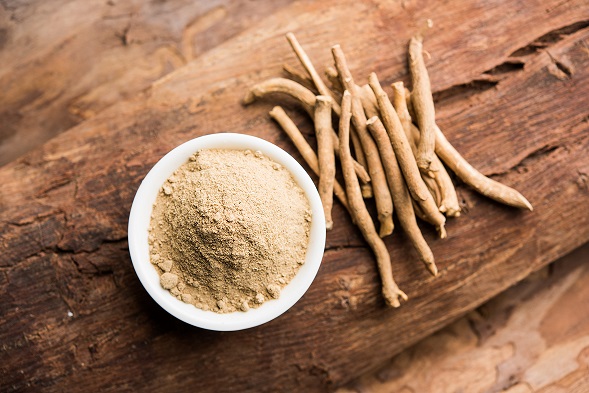12 HEALTH AND NUTRITIONAL BENEFITS OF ASHWAGANDHA

Botanical Name: Withania somnifera
Indian Name Ashwagandha
Origin, Distribution and Composition
Ashwagandha is a small or middle-sized, erect shrub, growing up-to 1.5 meters tall. Its stems and branches are covered with minute star-shaped hairs.
It has egg-shaped, hairy leaves up-to 10 cm long, small, pale green flowers in clusters of about 25; and smooth, spherical, red fruits with yellow seeds.
The shrub as a whole is used for several medicinal applications for its hypnotic and sedative properties. It promotes libido. The root of the plant is a tonic and stimulant.
It increases the secretion and discharge of urine and also other forms of secretion or excretion by opening the natural pores of the body. Recent experiments have shown that its roots and leaves possess antibiotic and antibacterial properties.
Health benefits of Ashwagandha
1. BLOOD SUGAR BALANCE
The ashwagandha is used to balance blood sugar fluctuations and also reduce cortisol levels (stress hormone) in the blood.
2. STRESS AND ANXIETY
Ashwagandha is known to reduce stress and anxiety in humans. Many studies have shown that it reduces symptoms of stress and anxiety by blocking the stress pathway in brain.
3. CHOLESTEROL AND TRIGLYCERIDES
Ashwagandha may improve heart health by lowering cholesterol and triglycerides. Studies have shown that it decreases triglycerides and LDL ( bad cholesterol).
4. DIGESTIVE DISORDERS
The root of the plant is used for treating digestive disorders like dyspepsia and loss of appetite. It corrects the disordered processes of nutrition and restores the normalcy in the system.
5. GENERAL DEBILITY
Its root are used in treating general debility. It is taken in 2 gram doses for this purpose.
6. RHEUMATISM
The root is effective in the treatment of rheumatism. It should be taken in 3 gram doses in treating this condition.
7. TUBERCULOSIS
The root is also used in treatment of tuberculosis. A decoction of the root is used with long pepper and honey. This is also beneficial in the treatment of scrofula, that is, tuberculosis of lymph glands, especially in the neck.
8. INSOMNIA
The root is also a narcotic, inducing deep sleep and hence beneficial in treating insomnia without sedative effect.
9. Cold AND COUGH
Ashwagandha is beneficial in the treatment of chest diseases such as cough and cold. The root can be taken either in the form of powder in 3 gram doses or in the form of decoction. Berries and seeds can also be taken for chest complaints with beneficial results.
10. FEMALE FERTILITY
The herb helps to cure female sterility. Powder of the roots in 6 gram doses can be taken with milk for 5 to 6 successive nights after menstruation.
11. SKIN DISORDERS
The leaves of the plant are beneficial in treating several disorders. Fomentation of the leaves is good for boils and swollen hands and feet.
A paste of the Ashwagandha leaves is locally applied to kill lice infesting the body and on painful swelling inside skin and syphilitic sores.
12. MALE FERTILITY & APHRODISIAC
Two to four grams of the root with milk or ghee can be taken as an aphrodisiac to enhance libido. The drug is beneficial in the treatment of spermatorrhea or involuntary ejaculation.
Two to four grams of the powdered root can also be taken daily with sugar, honey, long pepper and ghee in the treatment of these conditions.
PRECAUTIONS
The drug possesses properties that can abort a foetus and hence must be avoided by pregnant women.



